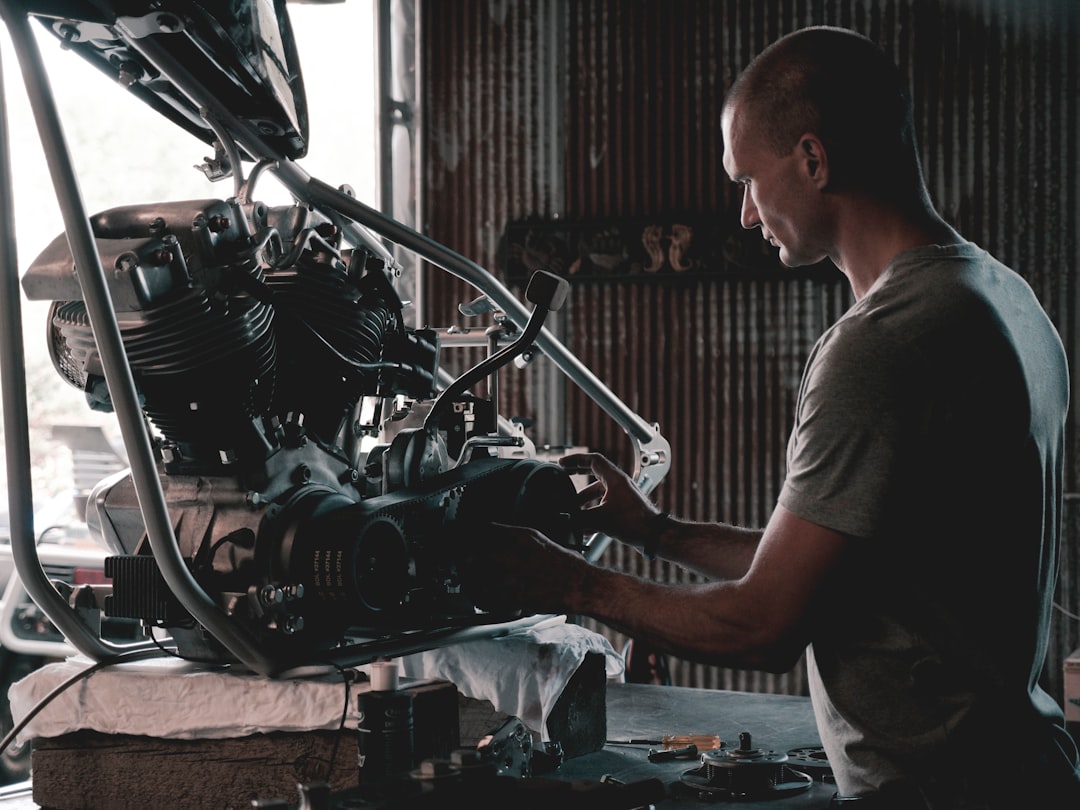Mechanical Engineer Mataaro Pūkaha
Mechanical engineers design and give advice on the building and repair of machines and tools. They also investigate problems and faults with machinery, and study ways to improve manufacturing and energy production.
Mechanical engineers may do some or all of the following:
- find out what their clients need
- investigate existing systems and prepare reports based on findings
- research energy sources, machinery and materials
- study the environmental and safety aspects of planned work
- prepare plans and drawings of machines and parts
- use computer-aided design (CAD) software to design and model plans
- prepare cost estimates for jobs
- supervise the building, installation, repair and replacement of systems
- review and test new systems.
Patent attorney
To become a patent attorney you need to:
- have a relevant qualification at Level 5 or above, in an area such as engineering, science or technology, which may have inventions that can be patented
- understand the subject in depth
- register with the Trans-Tasman IP Attorneys Board and complete approved courses.
Useful Experience
Useful experience for mechanical engineers includes:
- work with machinery, engines, electrical or electronics
- work in an industrial plant or factory
- work in engineering or building
- working with tools
- technical drawing.
Personal Qualities
Mechanical engineers need to be:
- accurate, with an eye for detail
- organised, with good project-management skills
- practical and good at problem-solving
- able to work well under pressure
- able to work well independently and in a team.
Skills
Mechanical engineers need to have:
- knowledge of mechanical processes
- knowledge of physics, electronics and thermodynamics (how energy is converted to heat to make machinery move)
- knowledge of different gases
- knowledge of safety regulations and quality standards
- mathematical modelling skills
- knowledge of any relevant legislation such as the Resource Management Act, the New Zealand Building Code, local by-laws and town planning regulations
- computer skills, including the ability to use computer-aided design (CAD) software
- communication skills including presenting and report writing.
Conditions
Mechanical engineers:
- usually work regular business hours but may be required to work evenings and weekends to fit in with process schedules and meet deadlines
- work in workshops, factories and offices and on building sites
- may have to work around heavy machinery or at heights, or in noisy and dirty conditions
- may have to travel between sites locally or supervise projects overseas.
Subject Recommendations
NCEA Level 3 is required to enter tertiary training. Useful subjects include digital and visual communication, English, maths, physics and chemistry.
Related Courses
Mechanical Engineers can earn around $85K-$105K per year.
Chances of getting a job as a Mechanical Engineer are good due to a shortage of people interested in this type of work.
Pay for mechanical engineers varies depending on qualifications, area of specialisation, experience and employer.
- Mechanical engineers usually earn $85,000 to $105,000 a year.
Registered patent attorneys
- Mechanical engineers working as registered patent attorneys usually earn $75,000 to $120,000 a year.
- Senior patent attorneys can earn $120,000 to $180,000 or more a year.
Sources: Seek, 2023; and New Zealand Intellectual Property Attorneys Inc, 2023.
Most mechanical engineers work as employees of engineering companies or companies that use engineering services. As they gain more experience they may progress into consultancy and project management roles.
Mechanical engineering is a broad discipline and most people employed in the role develop specific skills in a particular area such as:
- Agricultural Engineer
- Agricultural engineers perform and supervise engineering work related to the use and development of agricultural land, buildings, machines and equipment.
- Bio-engineer
- Bio-engineers apply physics, mathematics and engineering sciences to address problems in biology and medicine.
- Energy Engineer
- Energy engineers work with energy efficiency, energy services, facility management, plant engineering, environmental compliance and alternative energy technologies.
- Heating, Ventilation and Air-conditioning Engineer
- Heating, ventilation and air-conditioning engineers design and supervise the building, installation, maintenance and repair of heating, ventilation and air-conditioning systems and equipment.
- Manufacturing Engineer
- Manufacturing engineers turn raw materials into a new or updated product in the most economic, efficient and effective way possible.
- Rail Engineer
- Rail engineers deal with the design, construction and operation of all types of railway systems.
- Robotics Engineer
- Robotics engineers create new uses for robots, designing improved robots for existing systems, or repairing and maintaining industrial robots.
Years Of Training
3-4 years of training required.To become a mechanical engineer you usually need to have a Bachelor of Engineering (Mechanical).
Some companies employ people with a New Zealand Diploma in Engineering and relevant work experience.

 Epsom Girls Grammar School
Epsom Girls Grammar School